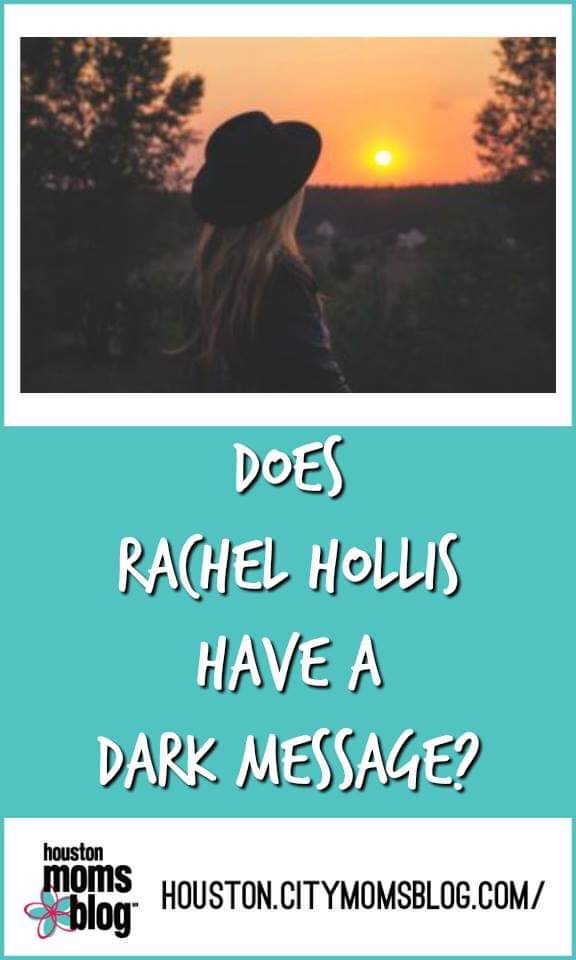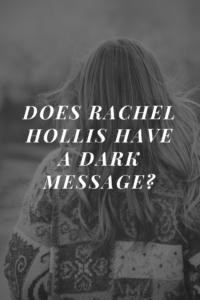A recent Buzzfeed article caught our Houston Mom’s Blog community’s attention. The author, Laura Turner, makes the case that while Rachel Hollis, a wildly popular social media influencer, author, and lecturer, connects women, and specifically mothers, on some timely issues, she has a dark message just beneath the surface. That dark message? Her “curated imperfection” and tough love message minimizes or flat out disregards those who have real struggles in this life {loss of a child, weight issues, sexual assault, systemic racism, etc.} and recklessly paints an improbable picture of motherhood through her carefully selected Instagram feed and blog posts.
Yet Rachel Hollis’ following continues to grow, and her message continues to resonate. Her reign on the New York Times Bestseller list has surpassed 30 weeks. Her live conferences sell out. Her books generate thoughtful debate. Truly, what’s her major downfall?
I don’t personally see the problem with her message, but I would probably be considered part of her target demographic. I am a white woman, financially comfortable, married with kids, and struggling a bit with how to juggle the demands of my day-to-day life. It is apparent and noted that I am not a victim of systemic racism and a system that stacks the cards against me. I do not have a child with severe health issues, nor have I had to suffer the unbearable pain of losing a child. I struggle a bit with my weight {hello, holiday weight and January reset!}. So yes, I am squarely in her marketing team’s sights, and the one with which Rachel is working to share her tough love message.
So a few questions emerge :: should Rachel not share such a targeted message to middle-class, relatively comfortable mothers, or should she broaden her message to be more inclusive and considerate of diverse walks of life? And is her message part of a greater issue – the “pull yourself up by your bootstraps” message that is popular these days?
Why should she broaden or soften her message? It’s clearly resonating with the audience for which it was written. Is it dangerous or dark of her to make bold recommendations to women who may have a major personal struggle going on? I think this is where personal responsibility and some common sense needs to step in. Rachel does not claim her book Girl, Wash Your Face is a bible for alcoholics, or anorexics, or severely depressed individuals, or…this list of potential disclaimers could go on forever. Yeah…as Laura mentions in the Buzzfeed article, Rachel’s book would not be a good selection for “a mother who is a woman who has lost her hoped-for child as a result of state officials turning a blind eye to a water-poisoning crisis in a predominantly black area, or a mother seeking asylum whose child was taken away from her at the border.” I think it’s kind of exploitative for Laura to make that suggestion.
At the very same time I picked up Hollis’ book, I picked up Shonda Rhimes’ Year of Yes. Everything in Shonda’s book did not resonate with me. When she spoke of hiding in her pantry with a bottle of red wine while her kids slept, I was like whaaa?? I’m not really feeling the visual picture you are painting here, Shonda. Yet still I enjoyed Shonda’s story for what it was. It was her experience in this life, and she shared from her heart. I could probably go make a stink of the danger in Shonda’s numerous anecdotes that make overdrinking so normalized. But I just took a silent mental note and then examined my own life. If you are looking for a reason to be offended, you will EASILY find it. If you are looking for a reason to love, you will find that too.
I didn’t agree with everything in Rachel’s book. For example, when she discusses taking her foster child for a visitation with her birth parents at a McDonald’s, but yet she only addresses her own personal hardship in the situation. I get where she’s going with the story – she is making the point that a personally confronting and upsetting thing for her drove her to medicate with alcohol. But as she was called out on {rightly in my opinion}, she callously doesn’t address the hardship of the birth parents and her foster child. However, her message shouldn’t be tossed out with the proverbial bathwater. Women, moms specifically, are self-medicating with alcohol and prescription drugs, and it should be addressed. I actually liked her chapter “The Lie: I Need a Drink” the best. Why? Because it hits home for me. Solidly. And rather than feeling shamed, I took a long look in the mirror and said “Mama, you can choose to soften the blows of life and take the edge off. But do it consciously. Know that there are trade-offs for that drink.”
My opinion is that Rachel’s message has immense value today. Many American moms are out there struggling in their little corner of the world privately. Rachel brings some of those “smallish” struggles out into the light in her own way. {But are overdrinking, overeating, divorce, and self-loathing really small matters?} As they say – in my humble opinion, just because the struggles aren’t as heavy burdens as those that others may be bearing in this world doesn’t mean she shouldn’t share her powerful message with her core audience. They, or we rather, want and need a little gut check and inspiration to realign with our true sense of purpose.
So what about these “preachers” of tough love? Are their messages harmful? I think what is harmful is to presuppose that a message should be a one-size-fits-all. We know that various teaching styles benefit our children. We generally recognize the value in bringing diverse backgrounds and experiences to the boardroom table. Why can’t we extend this same openness to prosperity preachers or “pull yourself up by your bootstrap” messages? It’s just one offering in a buffet line of possible philosophies from which we can draw inspiration or insight into our own lives. Take what you want, leave the rest.
Do we have the option available to us to say yeah, that message doesn’t really fit me and my world, but not label it as dark and nefarious? She hasn’t penned Mein Kampf after all. Rachel is striving to take positive action in the world. Can we all collectively give her that bit of credit? Again, in my truly humble opinion, her message isn’t dark – she aims to uplift a certain demographic and get them out of their own heads and into positive action. And they are clearly telling her and the world that it resonates. Go on, Rachel!
Pin this post and be sure to follow Houston Moms Blog on Pinterest!


















Rachel Hollis is a sociopath with narcissist traits. Highly manipulative. A fraud. She steals other writer’s ideas and words and quotes them as her own. A real scumbag. So many weak emotionally vulnerable women are seduced by evil women like this. Run. Her mask of sanity will come off one day…
Thanks for sharing your perspective, but pretty strong language there. Want to cite some more examples? Her swiping other’s inspirational concepts (not direct quoting) doesn’t make her evil. These labels you use (scumbag and evil) say more to me about you than about her.
I think that people look for something to pick on, adult bullies, it’s ridiculous!! Rachel Hollis has a wonderful message, she’s inspiring and most of all SO HONEST! She doesn’t try to fake that she is superwoman and handles everything on her own, in fact she makes it a point to let people know she has a ton of help!
Rock on Rachel Hollis, keep inspiring and lifting women up..and thanks for setting my soul on fire! 🙂